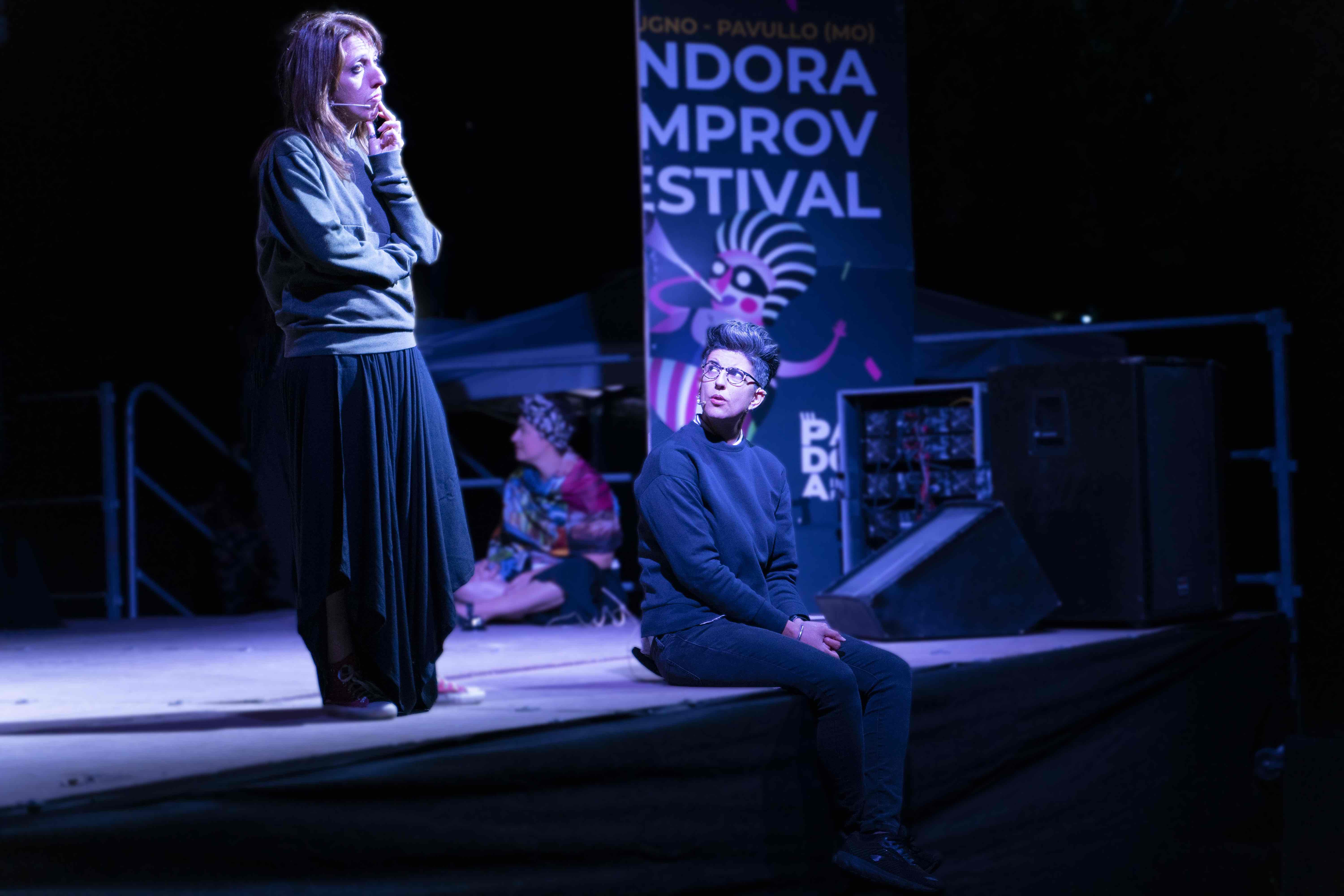Attraverso lo sguardo e l’esperienza diretta di tre improvvisatori teatrali che partecipano a Pandora, il festival di improvvisazione teatrale di maggior richiamo in Italia, si raccontano quelle giornate intense ed emotivamente coinvolgenti. Seguendo con approccio osservazionale sia le performance che i momenti non performativi, il film si addentra in un’esplorazione profonda delle dinamiche umane in gioco nell’improvvisazione. Questa, nascendo dalla costruzione di storie senza uno script predefinito, richiede connessione emotiva con gli altri attori sulla scena, ascolto attivo e capacità di comprendere e rispondere alle emozioni degli altri, in un’esperienza di creatività spontanea coinvolgente ed emozionante. Nei giorni del festival, uniti nello stesso luogo si ritrovano improvvisatori teatrali da tutta Italia e anche dall’estero, e l’eccezionalità dell’evento determina un moltiplicatore di quelle dinamiche umane ed emotive che il film vuole restituire.
Uno dei principi fondanti dell’improvvisazione teatrale è la teoria del “Yes, And...", che esprime il concetto di accettare le proposte degli altri attori dicendo "sì" e aggiungendo qualcosa di proprio ("e…"). In una dinamica libera di creazione narrativa, performativa, e di messinscena, che nasce anche e soprattutto dallo stare in relazione con gli altri, dalla fiducia reciproca, dal contemplare la possibilità del fallimento e anzi integrarlo nella costruzione delle storie, questo approccio orientato “all’altro” è l’espressione di una cultura di inclusione e di ascolto applicata alle arti performative, laddove in scena c’è un gruppo di persone, spesso estranee tra loro, che si mettono in gioco con le proprie personalità e i propri punti deboli. Il film vuole indagare le possibilità dell’improvvisazione teatrale come strumento di integrazione, di relazione con gli altri, esplorandone le dimensioni psicologiche e relazionali in una cornice gioiosa e vitale come il festival di teatro.
